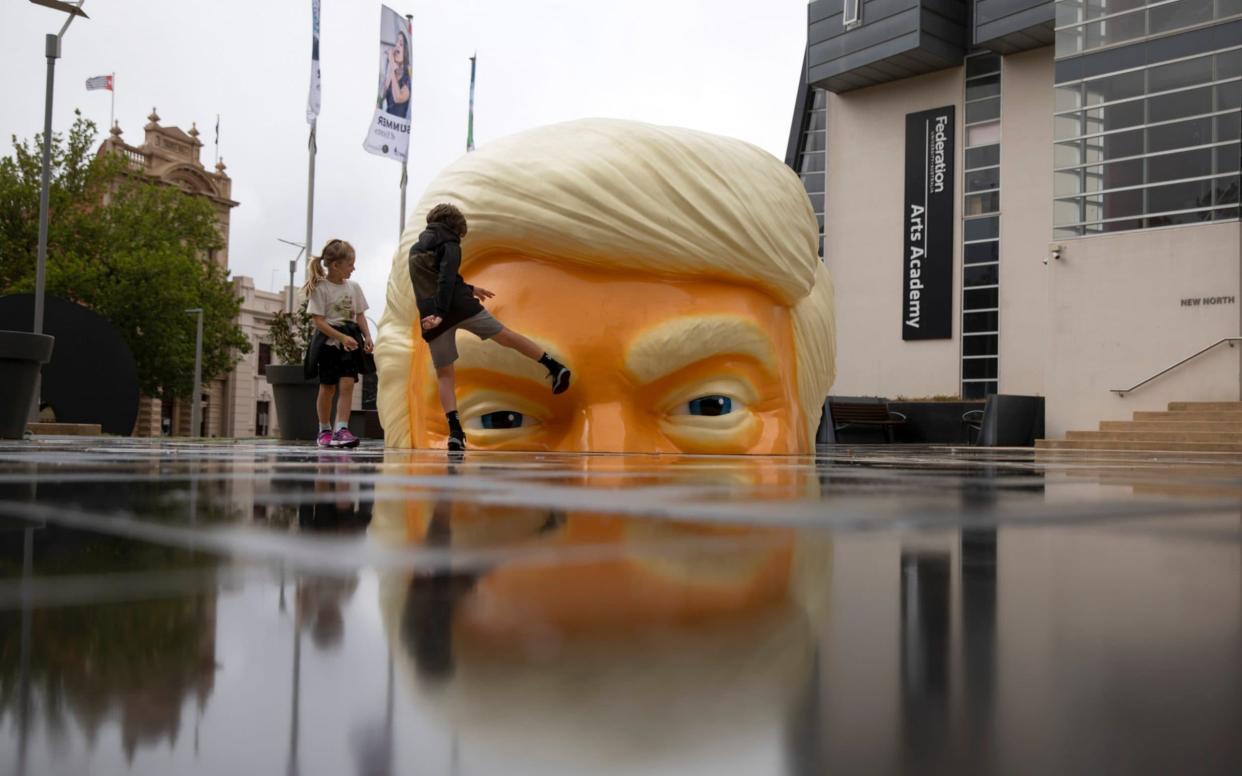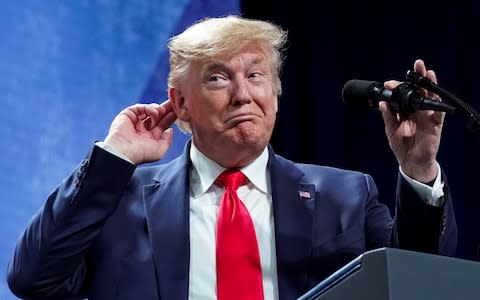Donald Trump impeachment trial: US Senate set to hear opening arguments

Donald Trump's historic impeachment trial began in earnest on Tuesday, with Democrats dismissing the process as a "cover up" and Republicans pushing to acquit the US president as quickly as possible.
The president's legal team have called on senators, who will act as jurors in the trial, to “speedily reject” the impeachment case against him, arguing that he broke no laws in a submission made on the eve of his trial in the Senate.
But Democrats have condemned the trial rules outlined by the Republican leader in the Senate, Mitch McConnell, which would give each side to just 24 hours to present their case.
Adam Schiff, the Democrat leading the prosecution, dismissed it as a "cover-up". "This is not a process for a fair trial, this is the process for a rigged trial" he told reporters.
The 100 members of the Senate gathered in the chamber on Tuesday afternoon, with the chief justice of the US Supreme Court, John Roberts, presiding over the trial.

It will be only the third time in history that a US president has endured an impeachment trial, after Andrew Johnson in 1868 and Bill Clinton in 1999.
The first order of business on Tuesday was to set the rules of the trial, such as how long they will hear the arguments of the House managers, or prosecutors; how long they will hear the defense; the time allotted for questions, submitted by the senators but read by Justice Roberts; and whether they will call witnesses or seek other evidence.
Mr Trump's team offered a preview of the president's defence on Monday night in their 171-page legal brief, arguing the impeachment proceedings had been a “rigged process” and insisting Mr Trump “did absolutely nothing wrong”.
Mr Trump’s lawyers central argument is simple: he cannot be guilty of abuse of power - the first charge against him - because he is not accused of violating any law, unlike past presidents who have faced impeachment.
They also summarily rejected the second article of impeachment, charging Mr Trump with obstructing Congress, by arguing that his decision to reject legal demands for White House officials to testify to the impeachment investigation falls within the remit of his executive powers. wi
Mr Trump himself, who is in Davos, Switzerland for an economic conference, denounced the proceedings as "a total hoax," as he does daily, and said, "I'm sure it's going to work out fine."
The Democrats' impeachment managers, who will act as the prosecution in Mr Trump's trial, begin outlining their case against the president on Tuesday.
They will make the case that Mr Trump tried to pressure Ukraine into interfering in the 2020 US election to help him win, and then tried to thwart a congressional probe of his behaviour.
Part of the scandal centers on a July 25 telephone call in which Mr Trump pressured Ukrainian President Volodymyr Zelenskiy to announce an investigation of former Vice President Joe Biden, Mr Trump's potential opponent in the November vote.
Democrats, who control the House of Representatives and led the investigation, accuse Mr Trump of manipulating Ukraine by withholding nearly $400 million in military aid for its war against Russian-backed separatists and a White House meeting for Mr Zelenskiy until the latter announced a Biden probe.
"The president did nothing wrong," Mr Trump's lawyers responded in their legal brief, which calls for the Senate to reject the articles "and acquit the president immediately".
The president's his 12-man legal team consists of high profile lawyers such as Kenneth Starr, who tried to bring down Mr Clinton over his affair with Monica Lewinsky.
While the Trump team's is unlikely to succeed in their attempt to get the case against Mr Trump speedily dismissed, the president looks almost certain to ultimately be acquitted because of the 53-47 Republican majority in the Senate.
Mr McConnell, the Senate Majority Leader, has proposed rules calling for each side to have 24 hours over two days to present their arguments. That makes for long trial days stretching late into the night but is a significantly quicker pace than in Bill Clinton's impeachment trial in 1999. The chamber will debate and vote on the proposed rules Tuesday.
Chuck Schumer, the top Democratic senator, said Mr McConnell is rushing the trial and also making it harder for witnesses and documents to be presented.
"On something as important as impeachment, Senator McConnell's resolution is nothing short of a national disgrace," he said in a statement.
The Democrats want key Trump administration officials to testify, such as acting chief of staff Mick Mulvaney and former national security adviser John Bolton, in the belief that they know a lot about Trump's dealings with Ukraine. Bolton has said he is willing to testify if subpoenaed.
The White House has said it expects the trial to be over in two weeks. mr Clinton's trial lasted five weeks.
<Mr McConnell has said he won't consider the witness issue until after the arguments and questioning take place, and his majority means he will likely prevail.

 Yahoo News
Yahoo News 
